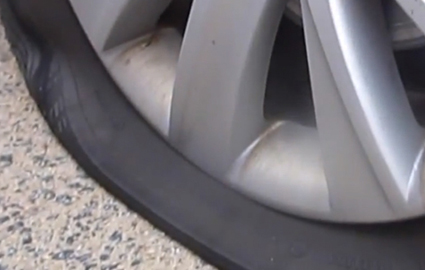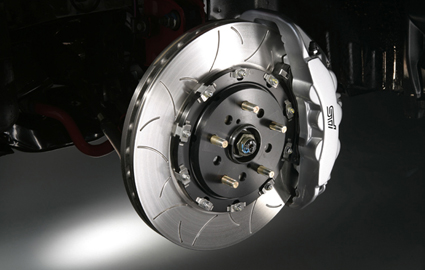Emergency Driving

Emergency Driving
Emergencies can arise at any time while driving. When they do, it's important to stay calm and be knowledgeable about what to do when these emergencies occur.
Some vehicle malfunctions are unavoidable, but routine maintenance helps keep the vehicle functioning at its best. Get oil changes every three months or after every 3,000 miles of driving. Also, have your mechanic check brake fluid levels and power steering fluid levels. Pay attention to gauges while driving. If the oil light or "check engine" light turns on, drive slowly, stay away from heavy traffic, and get your vehicle to a mechanic promptly.
Tire failure most commonly occurs when a tire blows or becomes otherwise detached. Focus on steering to keep the car on the road and avoid traffic obstruction. Do not slam the brakes. Steer the car and tap gently on the brakes, as not to create and sudden jolts that could throw the car off balance. Continue to slow down and tap the brakes until you have regained full control of the car and are able to safely pull off to the side of the road.
When brakes fail, pump the brake pedal as hard and rapidly as possible. Usually, this will build up enough brake pressure to bring the car to a stop. Try to get the car off to the side of the road to prevent accidents from traffic moving behind you. The goal is to bring the car to a stop. Shift the car into a low gear, which will ease acceleration and slow the car, and also pull the emergency brake if necessary. Hold onto the release button of the emergency brake handle, as you may need to release the brake if the rear wheels lock, causing the car to skid.
If the engine begins to smoke and/or catch fire, pull off the road to a safe location immediately, turn off the engine, get out of the car, and move away from the vehicle. Engine fires are very serious, as the car is fueled by flammable gasoline and can cause an explosion. Stay as far away from the car as possible and allow emergency services to handle the fire.
If the accelerator is jammed, focus on steering and shift the car into neutral. This will most likely cause engine damage, but when facing the alternative of a high-speed car crash, engine damage is the better alternative. Pull the car over and off the road and shut off the engine.
Comedy Driving is a Texas Defensive driving school that provides classes for both ticket dismissal and insurance discounts.
Reasons to take Comedy Driving Defensive Driving
- Flexible Schedule
- Email Delivery Available
- Unlimited Log-ins
- State Approved
- No Final Exam
- Animated Course
- Free Audio and Video
- Comedic Course
- Live Phone Support
- No Hidden Fee’s








